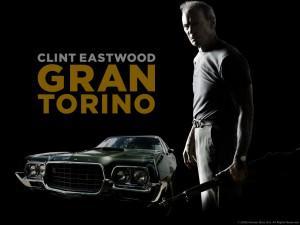
I love it when a movie packs a powerful message, but it’s even better when I can learn something about writing from the story. Clint Eastwood’s Gran Torino is one such movie. At first glance, it’s a rough movie with a not-so-likable, atypical hero. It is filled with violence and foul language which might turn off many people, but I gave the movie a chance, and I’m glad I did because not only did it touch my heart, it showed taught me several lessons about storytelling.
Writing the Atypical HeroClint Eastwood’s character, Walter, a racist, foul-talking, cantankerous old man, is not what you’d think of when you think of a hero. But a hero he was in the end. I’m not going to give away any spoilers, but I do want to share a few points on how I think an offensive guy like Walter can play the heroic protagonist.
The Power of Characterisation Walter’s use of foul-language and racism had a place in this gritty, gang-infested movie. It was raw and hard to listen to at times, but it wasn’t over done. The movie opens at his wife’s funeral, but Walter’s hardened disposition to life was well solidified before his wife’s death. Despite his in-your-face bigotry, you can’t help but like the man. Mainly because those he’s “bigotring” can’t help like him. And that softens his character and turns him into a likable hero.
A Lesson in Character GrowthLittle by little you see Walter’s redeeming qualities sneak out. Though still cantankerous and demeaning in speech, his actions reveal his heart and betray his hardened exterior. He’s growing as a character and touching the lives around him (the same people he demeans) in a profound and life changing way.
Spiritual SymbolismWhen the movie starts, Walter wants nothing to do with God. But as the movie progresses you see the struggle he has with wanting redemption. Though he claims to not need any, he desperately wants it. You see his struggle with his own sin and how, in the end, he plans on earning his forgiveness.
Though the story doesn’t give a Christian message that “there’s forgiveness in Christ alone,” it’s spiritual symbolism is touching and poignant. It’s a great example of how a gritty, ugly, story can present the gospel in a subtle but powerful way, and how an unlikable character can touch our hearts and be a hero.
How about you? What movie has taught you about writing?
And if you saw Gran Torino, what did you think? Please keep comments generic and don’t reveal plot surprises.

